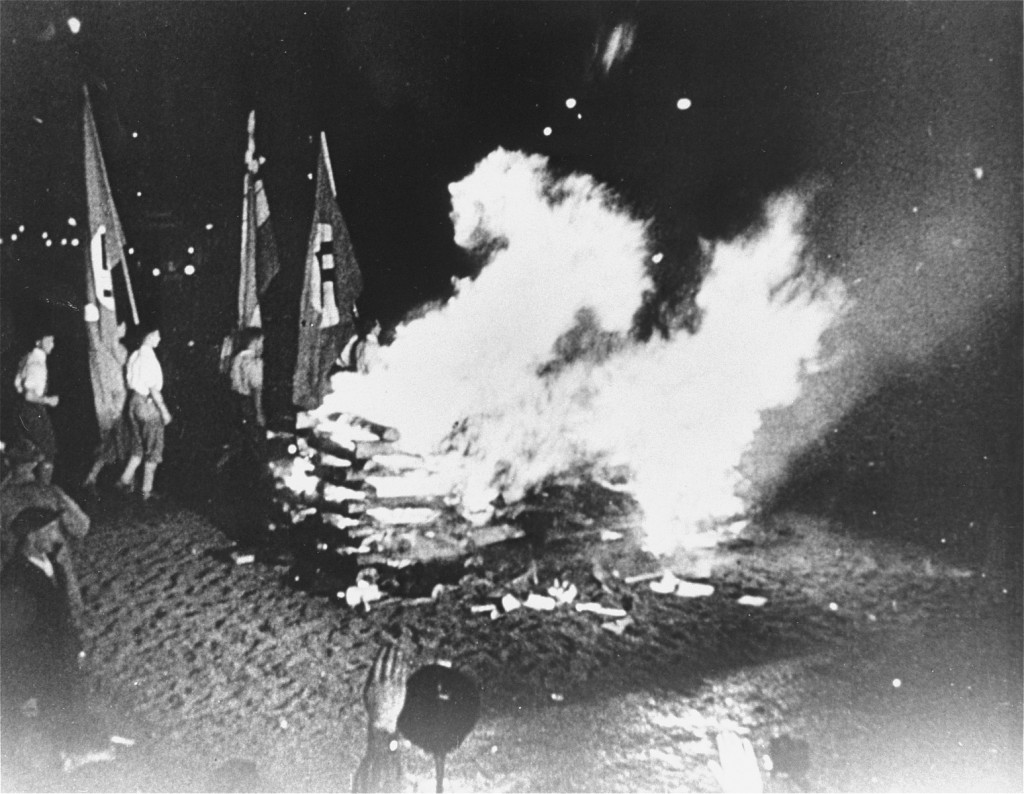
Friedrich Wilhelm Förster
In 1933, Nazi students at more than 30 German universities pillaged libraries in search of books they considered to be "un-German." Among the literary and political writings they threw into the flames were the works of Friedrich Wilhelm Förster.
Excerpt
The so-called German renewal through National Socialism is nothing but a hollow promise...
—Die tödliche Krankheit des deutschen Volkes (The Deadly Disease of the German People), Friedrich Wilhelm Förster, 1933
Fire Oath
"Fire oaths" were statements to be read as books were tossed to the flames. The German Student Association sent out a circular containing these statements before the book burnings. The fire oaths then accompanied the burning of works written by the individual authors named in the statements.
Against opportunism and political betrayal
For devotion to nation and state
F.W. Förster
Which of Friedrich Wilhelm Förster's Works were Burned?
All works published before May 1933
Who was Friedrich Wilhelm Förster?
Friedrich Wilhelm Förster (1869-1966), the son of a well-known German astronomer, was an accomplished author, educator, and philosopher. Between 1914 and 1920, Förster was a professor in Munich, where he was vocal in his criticism of German militarism. He relinquished his academic position in 1920 after nationalistic colleagues attacked his ideas. He fled first to Zurich in 1920 and then to France in 1926. Förster continued to publish and in 1933 wrote The Deadly Disease of the German People, a severe criticism of German nationalism and aggression.
On May 10, 1933, Friedrich Wilhelm Förster's works were publicly denounced and burned. His writings were seen as so subversive that the Nazis singled them out in a special "fire oath." In 1940, Förster went to New York where he continued to write. He returned to Switzerland in 1963.
Critical Thinking Questions
If Jews were the principal target during the Holocaust, why were books written by non-Jewish authors burned?
How did the German public react to the book burnings? What were some of the reactions outside of Germany?
Why do oppressive regimes promote or support censorship and book burning? How might this be a warning sign of mass atrocity?

